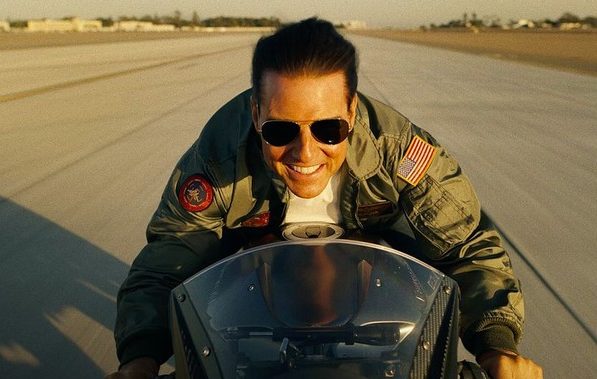A sequel coming to theatres 30 years late doesn’t deserve to be this good. Yet, all the pitfalls of a traditional studio cash grab on a successful IP are surprisingly absent here for Top Gun: Maverick.
In their place in a taut, exhilarating story propelled by literal jet engines and a nail-biter of a climax.
The audience’s suspension of disbelief extends not just to the jet fighter antics, but to Tom Cruise as he carries the same star power and charisma of an action hero half his age. In fact, even as he inches closer to 60 years of age, he not only retains his youth charm but his performance layers on the experience and gravitas of age.
For those who loved the original, there’s also nostalgia by the carrier-load. The return of Val Kilmer works to elevate the plot and honour the popular character while remaining respectful of his recent health battles.
Everything works so well here it’s hard to believe it’s been three decades since moviegoers walked out of the theatre humming “highway to the danger zone”.
In the film, we’re reintroduced to United States Navy Captain Pete “Maverick” Michell whose streak of insubordination has kept him from rising through the ranks. Instead, he has settled into the life of a test pilot.
However, it isn’t long before he’s called back to TOPGUN, the elite fighter pilot school, to train the next generation for a high-risk mission.
It’s gleeful to watch the hotshot Maverick as the fish-out-of-water in a teaching role; he has always been better at breaking rules than enforcing them.
Much of the drama comes when one of the students is revealed to be the son of Maverick’s late friend, Nick ‘Goose’ Bradshaw from the original film. Bradley “Rooster” Bradshaw blames Maverick for his father’s death and, as we eventually learn, resents him for interfering with his own military career.
SPOILER ALERT
However, it’s not long before we learn Maverick was actually honouring a promise he made to Rooster’s mother to keep him out of the Navy and away from the dangerous life as a fighter pilot.
For the men in the audience, it will hit hard when Maverick explains he’d rather be the target of the young man’s hate than have Goose learn the truth and resent his mother.
It’s a road of self-sacrifice and adds depth to both Maverick and the conflict with Goose.
This theme of self-sacrifice carries through to the end when Maverick, in true insubordination mode, goes on an unsanctioned test flight to prove the plot’s suicide mission can be accomplished.
His superiors begrudgingly admit “the Navy needs Maverick, and he leads the mission himself. It’s in this final conflict that Maverick chooses to sacrifice himself to save Rooster.
While the team is ordered back to base, Rooster shows a streak of insubordination himself and returns to rescue the downed Maverick.
Themes of fatherhood and self-sacrifice are a bit on the nose, but still hit like a tomahawk cruise missile as the son and father-figure reconcile.
For many men, whether they have experienced a nurturing father-son relationship or a strained one, the story acts as a powerful reminder to love patiently and sacrificially.
No matter the divide, a good father’s love is unconditional.
If you are a fan of the original Top Gun, do not delay. This one is worth returning to the theatres for.
About


